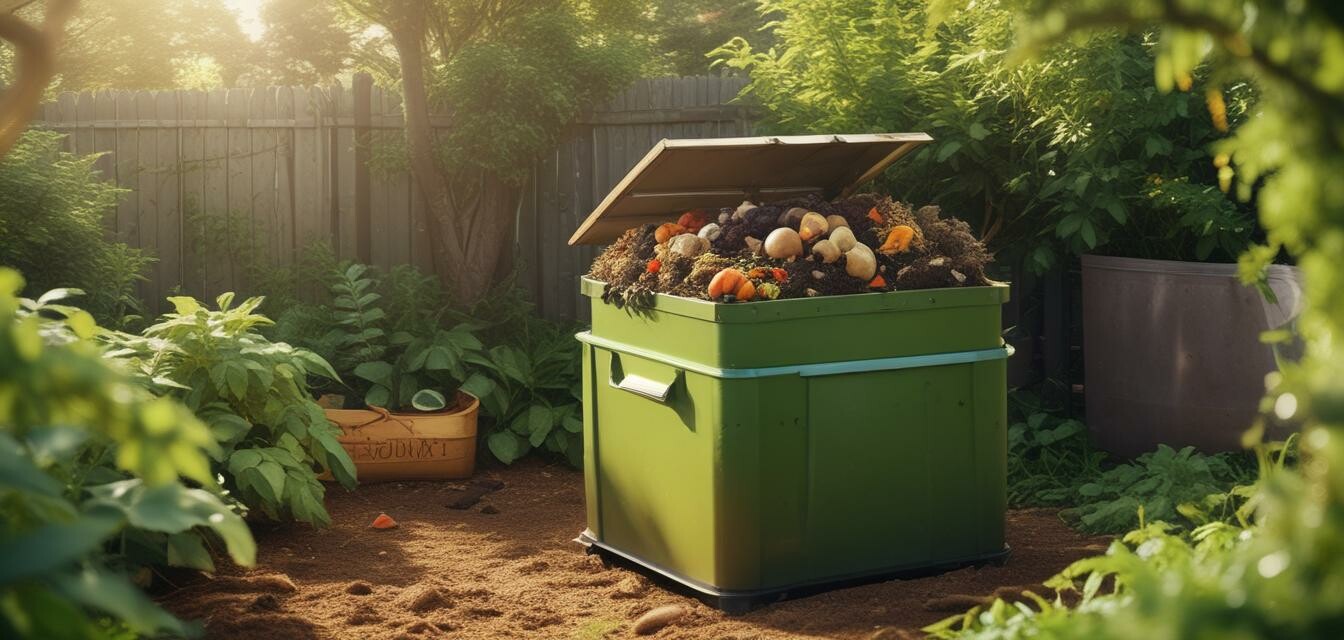
Beginner's Guide to Compost Bins: What to Look For
Key Takeaways
- Understand different types of compost bins: tumblers, worm bins, and smart composters.
- Choose the right size based on your waste production and garden size.
- Look for durable materials that are weather-resistant.
- Ensure proper aeration and accessibility for easy maintenance.
- Consider your composting goals and environment when selecting a bin.
Composting is a sustainable and rewarding way to manage organic waste. Whether you're a novice or just considering starting, understanding what to look for in a compost bin is crucial for a successful composting experience. This guide will help you navigate through the options available and make an informed decision.
Types of Compost Bins
There are many types of compost bins, each designed for different needs. Below is a brief overview of the most common types:
| Type | Description | Pros | Cons |
|---|---|---|---|
| Compost Tumblers | Enclosed bins that can be rotated to mix compost. | Easy mixing, faster composting process. | Higher cost, may require space. |
| Worm Composting Bins | Bins specifically for composting with worms. | Produces rich compost, minimal odor. | Requires worm care, smaller capacity. |
| Bokashi Composting | A fermentation process using special bran. | Handles meat and dairy, quick composting. | Needs more monitoring, secondary composting stage needed. |
| Open Air Composters | Simple piles or bins for organic waste. | Low cost, large capacity. | Requires more turning and space. |
| Smart Composters | Hi-tech bins that monitor and guide the composting process. | Automated control, ideal for busy lifestyles. | Usually expensive, requires electricity. |
Considerations When Choosing a Compost Bin
When selecting a compost bin, consider the following factors:
- Size: Choose a bin that matches your composting needs. Smaller bins suit apartment dwellers, while larger ones fit households with bigger waste volumes.
- Material: Opt for durable materials that can withstand weather conditions. Plastic and metal are common choices.
- Aeration: Proper airflow is essential. Look for bins designed with ventilation features.
- Accessibility: Ensure the bin is easy to open and collect compost. Some models come with side doors for easy access.
- Maintenance: Assess how much effort you want to put in. Some bins need regular mixing while others are more low-maintenance.
How to Maintain Your Compost Bin
Maintaining your compost bin is key to successful composting. Here are some tips:
- Regular turning: For tumblers and open bins, turn the compost every few weeks to aerate.
- Moisture control: Keep compost damp but not soggy. Add water if it gets too dry.
- Balance carbon and nitrogen: Add greens (high nitrogen) like vegetable scraps and browns (high carbon) like dry leaves or paper in the right ratios.
- Monitor temperature: Aim for temperatures between 130°F and 160°F for optimal decomposition.
- Check for pests: Keep an eye out for unwanted visitors and manage them by covering compost or removing certain foods.
Frequently Asked Questions
Here are some common questions beginners often have about composting:
- What can I put in my compost bin? Most organic food scraps, grass clippings, leaves, and paper can be composted. Avoid meat, dairy, and oils.
- How long does it take to compost? Composting can take anywhere from a couple of weeks to several months, depending on factors like compost type and environmental conditions.
- Can I compost in winter? Yes, while it may slow down, composting can still occur in colder temperatures, especially in insulated bins.
- Is homemade compost safe to use? Yes, composting ensures that harmful pathogens are killed during the process if done correctly.
- Do I need to add anything to my compost? You may consider adding compost activators or worm castings to jumpstart the composting process.
Tips for Beginners
- Start small and scale up as you become familiar with composting.
- Keep a compost diary to track what works and what doesn't.
- Educate yourself about different composting methods to find the one that fits your lifestyle.
- Engage with local composting communities for support and tips.
Pros
- Eco-friendly way to reduce waste.
- Produces nutrient-rich compost for gardening.
- Can lead to cost savings on organic waste disposal.
- Encourages sustainable living practices.
Cons
- Requires time and effort for maintenance.
- Can attract pests if not managed properly.
- Odors may develop if the compost is not balanced.
- Initial cost for purchasing a bin can be high.
For more detailed information on composting, check out our sections on worm composting bins and Bokashi composting. Understanding these diverse methods will deepen your composting knowledge and help you choose the right bin that fits your needs.
By making informed decisions on composting, you not only manage waste thoughtfully but also contribute positively to the environment. Happy composting!